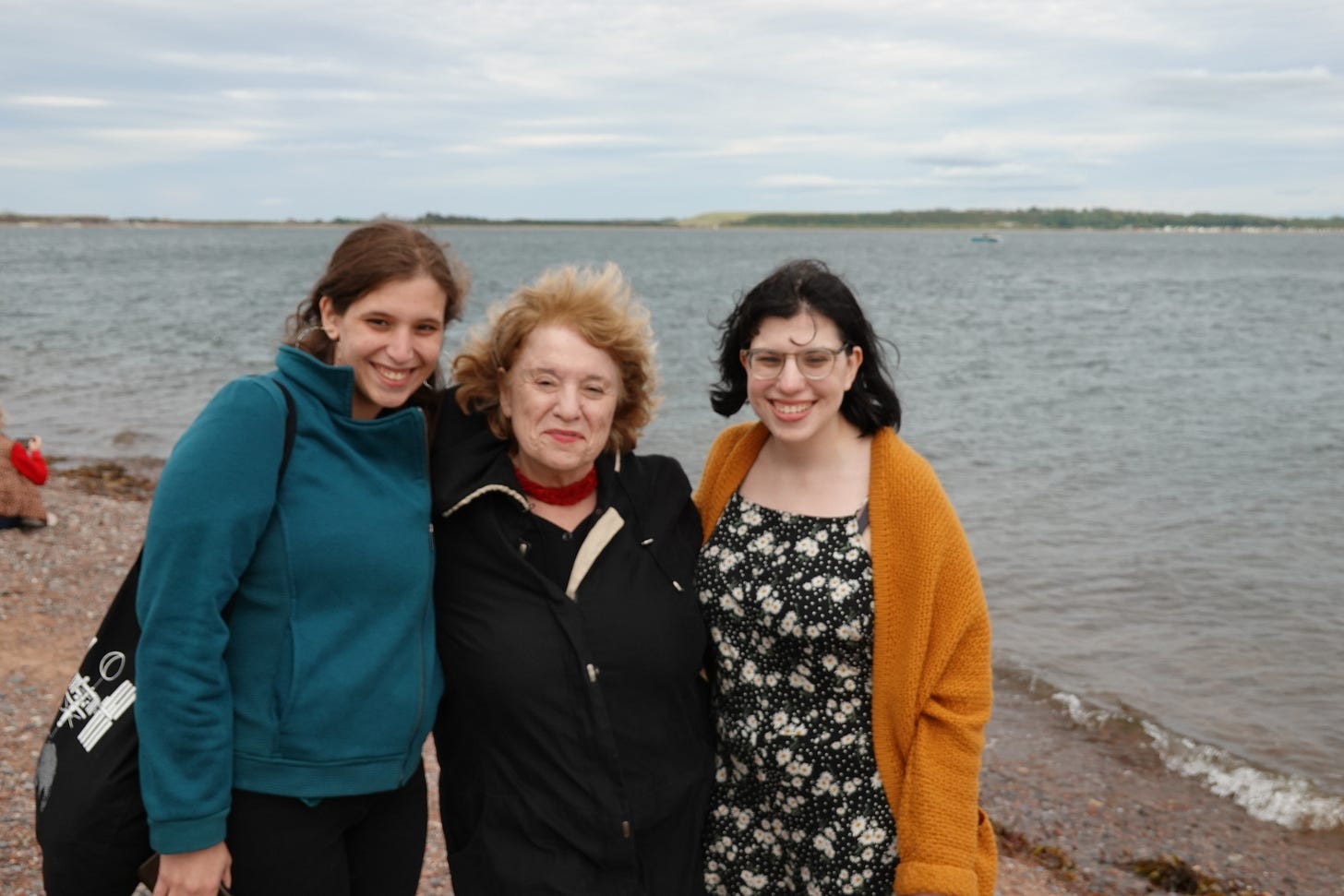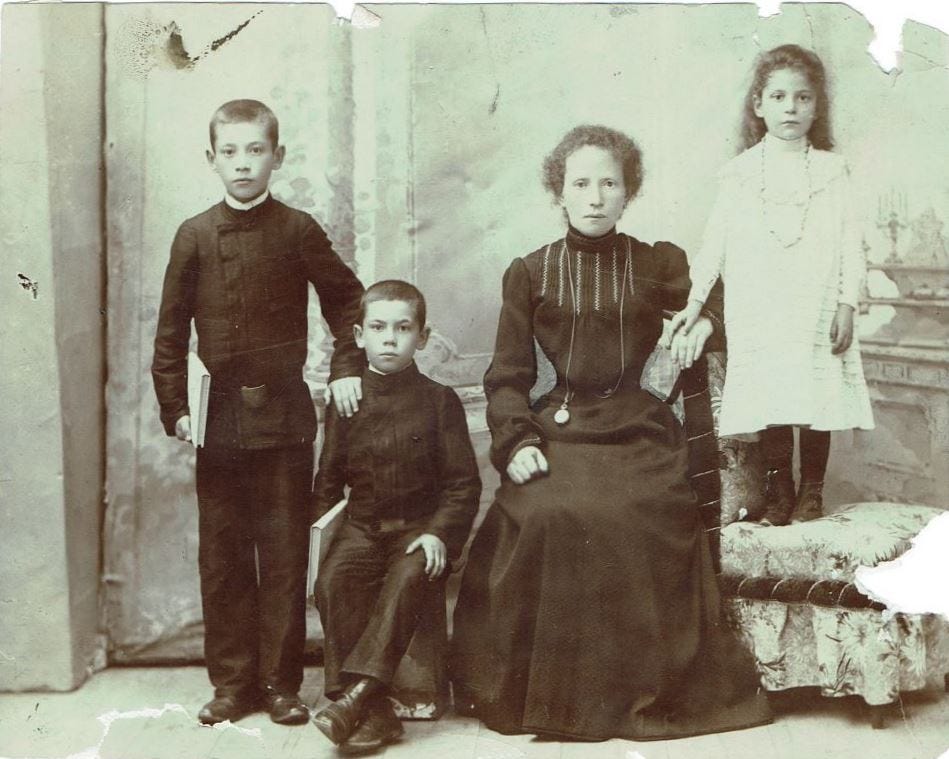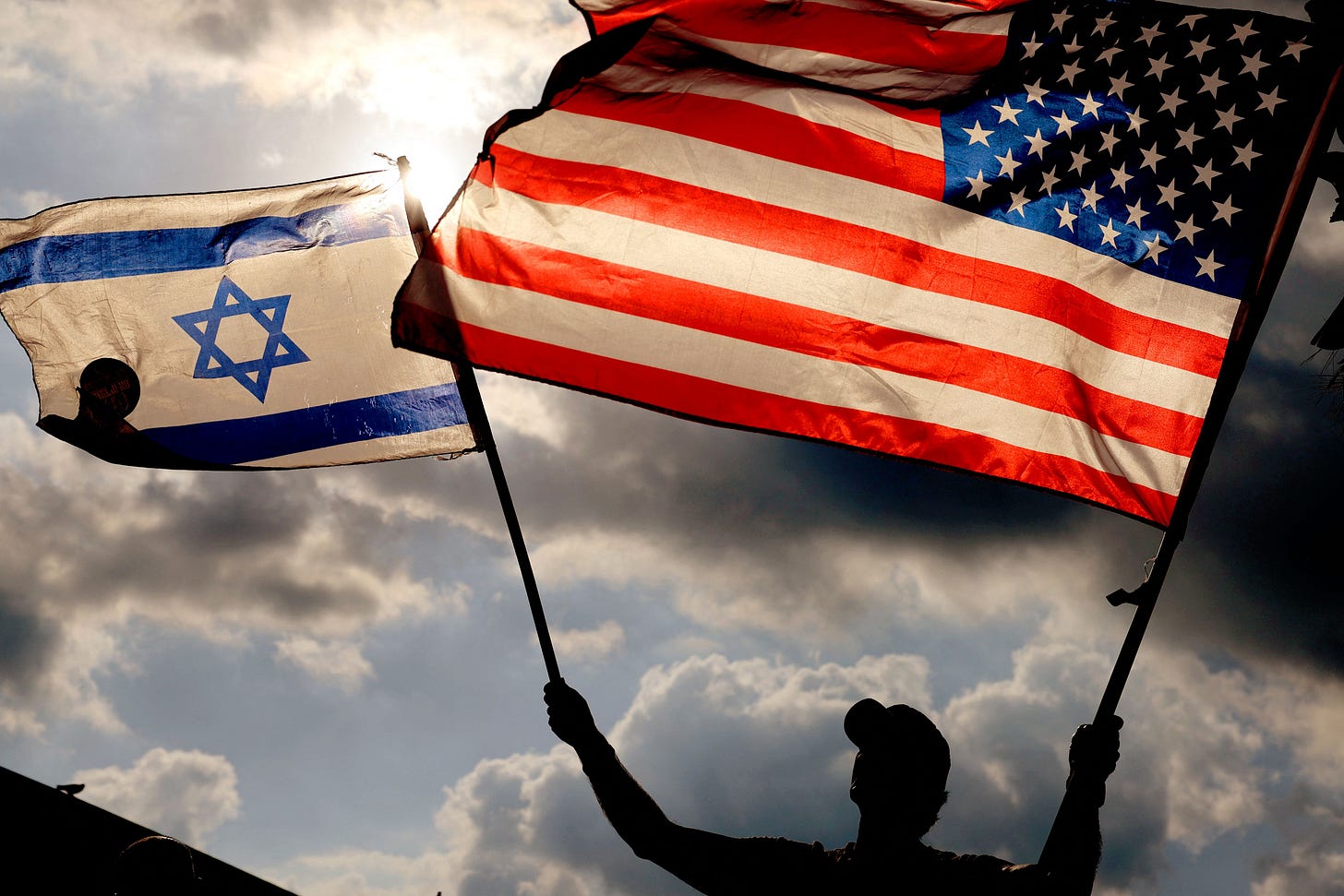Israel, Ukraine, and the Need for American Leadership
Republicans must step up and start acting responsibly. Real wars are killing real people.
IT WAS ONLY A MATTER OF TIME before Josh Hawley threw Ukraine under Vladimir Putin’s bus. “Israel is facing existential threat. Any funding for Ukraine should be redirected to Israel immediately,” the Republican senator from Missouri wrote Monday afternoon.
To think I fretted that Ukraine—facing its own an existential threat from a nuclear-armed Russia and its dangerously deluded president—might fall out of the headlines for a while when Hamas unleashed massive terrorist horrors on Israel, and Israel declared war. The idea of pulling back U.S. support never came to mind. Russia could not have imagined a more generous gift.
Hawley is trying to pose a binary choice. That is as wrong as Alabama Sen. Tommy Tuberville staging a one-man military promotions blockade because he doesn’t like the Pentagon policy of reimbursing troops who travel out of state for abortions. A wealthy superpower has responsibilities, and also capacities. We can’t abandon either Ukraine or Israel, nor do we need to. In fact, what’s called for is what Bill Kristol proposes: “a big, year-long Arsenal of Democracy supplemental, with ample funding for Ukraine and Israel as well as for border security.”
The shocking attacks on Israel are personal for so many Americans and Jews around the world. I have no family there, but I do have a friend I was worried about—journalist and translator Ruth Sinai, a former colleague of mine at the Associated Press in Washington before she moved home to Israel. It was with trepidation that I wrote her the other day to make sure she and her family were safe. It turned out her husband and one daughter were at their apartment in Tel Aviv and she was in Scotland visiting their other daughter.
“My flight took off Saturday morning less than an hour before the first missile barrage that opened the door to Israel’s hell. Landing in Amsterdam for a connecting flight, I found messages telling me war has started while I was in the air. A rocket from Gaza landed some 500 meters from our place. I wanted to turn around and go back, but knew Maayan was alone here and would also need me. Or, maybe, I would need her,” Ruth said in an email to me.

“I’m glued to BBC and Sky and Israeli news sites. There really are no words to describe the horror. I avoid looking at social media videos showing grandmothers hugging grandkids being led away by armed men, whole families who were wiped out in the kibbutzim, the bodies of young party goers strewn on a barren field. Some of the footage suggests sexual violence against girls kidnapped at the rave,” she wrote. “I keep hoping it’s a nightmare from which I will awake. . . . The cliché of taking one day a time seems my best option to avoid screaming my head off until my voice gives out.”
And that was before Tuesday’s reporting on decapitated babies.
I DON’T HAVE FRIENDS OR RELATIVES IN UKRAINE, but that war is personal to me because of my family history. My grandfather was from Belostok, part of the Russian Empire from 1807 to 1921 (it’s now Bialystok in Poland). He told us his mother hid Bolsheviks under the bed and was shot at in the streets—unverifiable, but consistent with what was going on in the heavily Jewish city in the years leading up to the Russian Revolution: intense labor activism, Russian reprisals, and violence. He said he was about 10 when he, his mother, his brother, and his sister fled to join their father and two brothers in America.
In a 1994 interview my 8-year-old son did for a school project, a relative said the family was among the “working poor” in Russia and at one point had no home. My grandfather often told us he was smuggled out of Russia under a pile of hay on a wagon, and maybe he was. Documents show he came to New York in 1905, just as he told us. He went on to become a successful businessman, husband, and father—one person in an ongoing diaspora who could have helped build Russia but left. My New York-born grandmother was also of Russian descent: Her family, we were told, was from Kiev—then in Russia, now Kyiv in Ukraine.

I’m hugely emotionally invested in Ukraine, but not because my grandmother might have had roots there. It’s more about the valiant determination of Ukrainians in the face of a brutal, unprovoked invasion by a neighboring state that wants to swallow up their country whole and make the world forget it ever existed. “This will not stand,” George H.W. Bush said when Iraq invaded Kuwait in 1990. Ukraine is that sovereignty challenge on steroids: evil vs. innocence, aggressor vs. victim, ruthless autocrat vs. steely, charismatic leader of a country trying to save itself.
By contrast, the complexities of the Israeli-Palestinian conflict—not least the Israeli prime minister on trial for alleged corruption and fraud, while his hard-right government has been pursuing harsh policies toward Palestinians and controversially attempting to weaken the Israeli court system—have led to nuances and pushback. President Joe Biden and the leaders of France, Italy, Germany, and the United Kingdom said in a joint statement Monday, for instance, that “All of us recognize the legitimate aspirations of the Palestinian people, and support equal measures of justice and freedom for Israelis and Palestinians alike. But make no mistake: Hamas does not represent those aspirations, and it offers nothing for the Palestinian people other than more terror and bloodshed.” New York Rep. Alexandria Ocasio-Cortez, one of six congressional members of the Democratic Socialists of America, denounced the “bigotry and callousness” expressed at a Times Square rally the New York City DSA chapter had promoted. “It should not be hard to shut down hatred and antisemitism where we see it,” she said, adding that thousands of New Yorkers “are capable of rejecting both Hamas’ horrifying attacks against innocent civilians as well as the grave injustices and violence Palestinians face under occupation.”
As death tolls rose Tuesday, reports of new atrocities surfaced, and the president confirmed that those killed or taken hostage included Americans, he condemned the Hamas attacks in the strongest terms possible. There are moments, Biden said, when “pure, unadulterated evil is unleashed on this world,” and this was one of them. “The brutality of Hamas—this bloodthirstiness—brings to mind the worst—the worst rampages of ISIS. This is terrorism,” he said. He also said he had just gotten off his third call with Prime Minister Benjamin Netanyahu, “and I told him if the United States experienced what Israel is experiencing, our response would be swift, decisive, and overwhelming.”
That could mean many things. Washington Post columnist David Ignatius argues that America’s 9/11 trauma holds a lesson for Israel: Don’t overreact. “Israeli power at its best is calculated and ruthlessly efficient. I hope that Israel, in avenging this assault, doesn’t create future problems that are even worse,” he wrote.
Biden told CNN in July that he still believed in a two-state solution for the region going forward. A few months later, that path seems to have all but disappeared.




